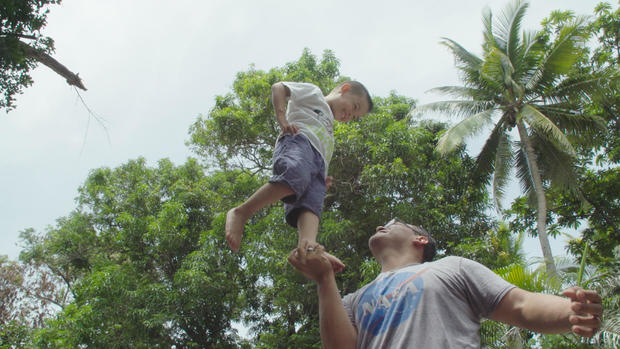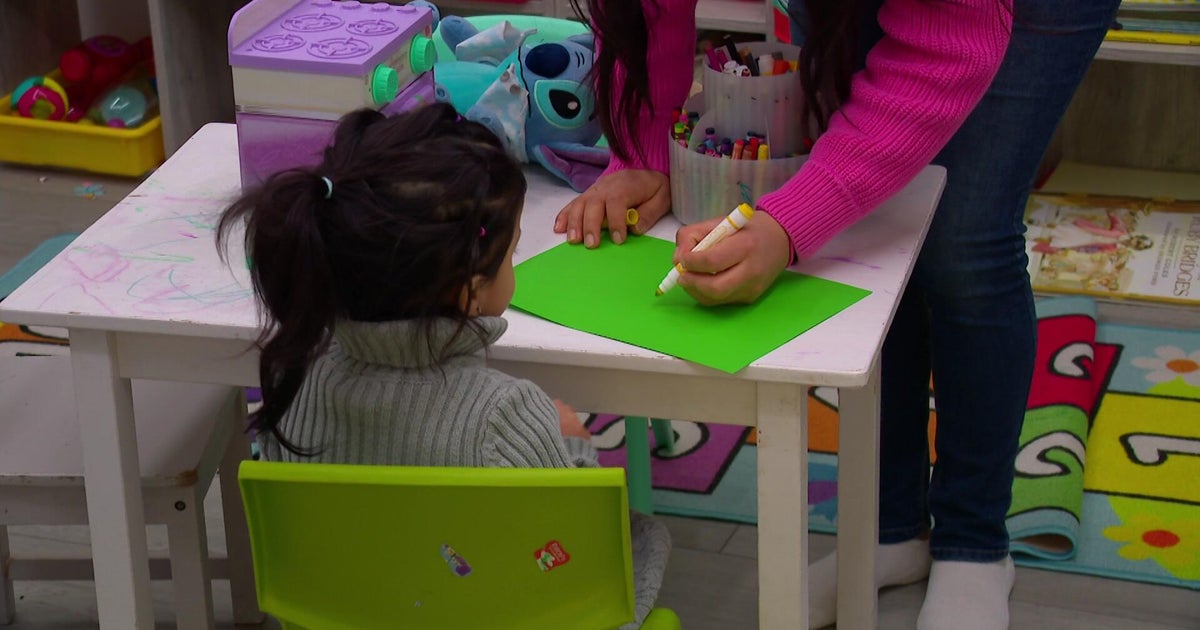Father says he'll do "whatever it takes" to get 5-year-old from El Salvador across U.S. border
Watch the new CBSN Originals documentary, "Families in Crisis: Illegal Immigration," in the video player above.
It's morning in San Luis Herradura, a coastal community about an hour's drive south of San Salvador, El Salvador. Rafa Arturo is brewing coffee in the home of a distant relative where he shares a small bedroom with his 5-year-old son, Jacob. He says their stay is only temporary and that as soon as he can make the arrangements to get Jacob to the United States, they'll leave.
Rafa Arturo (not his full name) says his parents smuggled him to America when was he was a small child. He grew up in Los Angeles area, got married, and has four daughters — all U.S. citizens. Arturo never obtained citizenship, but said his green card protected him from deportation as long as he kept a clean record and followed the law. But between 1992 and 2001, Los Angeles Police Department records show that Arturo was convicted of three theft-related crimes: burglary, possession of stolen property, and grand theft. He was deported back to El Salvador in 2009.
- Deported from the U.S., now answering your calls
- MS-13 and the violence driving migration from Central America
Arturo acknowledges that it's unlikely that he'll be able to reunite with his family in the U.S., but says he's determined to get Jacob out of El Salvador.
"The reason why I want to send Jacob to the States is number one, his safety. That's number one." In 2015 El Salvador became infamous as the deadliest country in the world, per capita, outside of a war zone. Homicide rates have steadily decreased since then, but gang violence is still a persistent threat. According to the United States Agency for International Development, as of August 2018 El Salvador has the highest homicide rate in the world for those under the age of 19. Gangs reportedly begin recruiting children as young as 8 years old.
In 2018, Arturo applied to enroll Jacob in a Catholic school in the U.S. and attempted to acquire a tourist visa for him so he could interview with school administrators and take the entrance exam, but the visa application was denied. He subsequently requested a student visa, but that too was rejected. "My daughters were going to take the full brunt of the housing, the food…and they denied him," Arturo said.
He remains determined to get Jacob to the States, even if it means sending him across the border illegally. "At this moment, yeah, I'm not going to lie to you. I'm ready. And I could care less what anybody says. They're not living in my shoes."
The route Arturo says he'll take is a well-traveled one for those migrating from El Salvador: a bus to the Guatemala-Mexico border, then transiting the 2,500 miles northwest from Tapachula to Tijuana. It's so well known that the path is lined with criminals of various stripes looking to either do business with, or prey on, the migrants journeying north. Kidnappings, robberies, and other threats lurk around many corners along the way. The consequences of falling victim to any of these hazards can end in tragedy. But it's a gamble Arturo says he's prepared to make.
"Kidnapping is one of the things that I got to be very aware of, and that's mostly on [sic] the cities that I'm going through. And child sex and all that stuff … I was reading that there are cities that that's what they're into. So I've got to be around."
If Arturo gets Jacob safely to Tijuana, the boy would then go on alone, and would face further dangers crossing the border with a coyote, or smuggler. According to a 2013 Congressional Research Service report, an estimated 75 to 80 percent of newly arriving unaccompanied children crossed with the aid of coyotes, who must pay organized crime syndicates like Los Zetas. Coyotes have been known to sell migrants into forced labor or prostitution to cover the costs.
While illegal border crossings into the U.S. have decreased in recent years, the proportion of unaccompanied minors making the trek has surged. According to the Migration Policy Institute, the number of unaccompanied minors crossing the U.S.-Mexico border rose 90 percent between 2013 and 2014 and U.S. authorities stepped up their efforts in response. In the fiscal year ending September 2016, a record 17,500 unaccompanied Salvadoran children were apprehended at the border — almost twice as many as in the previous year.
Should Jacob be detained and deported, not only will his perilous journey have been in vain, but his father's decision to send him on this path at just 5 years old would place him on the radar of U.S. authorities, potentially jeopardizing any future chances of obtaining legal status.
Nevertheless, Arturo in unwavering in his decision. "As a parent, I'll do whatever it takes to get my son to a next step," he said.






